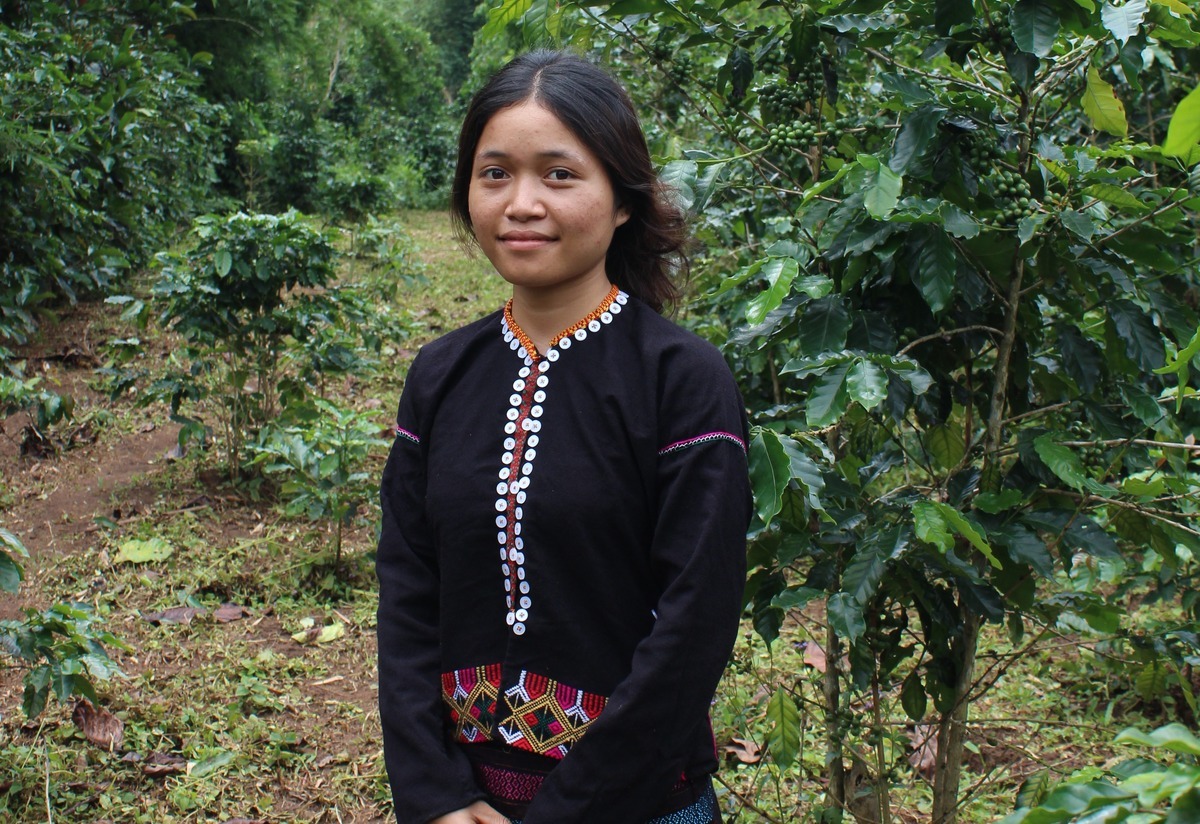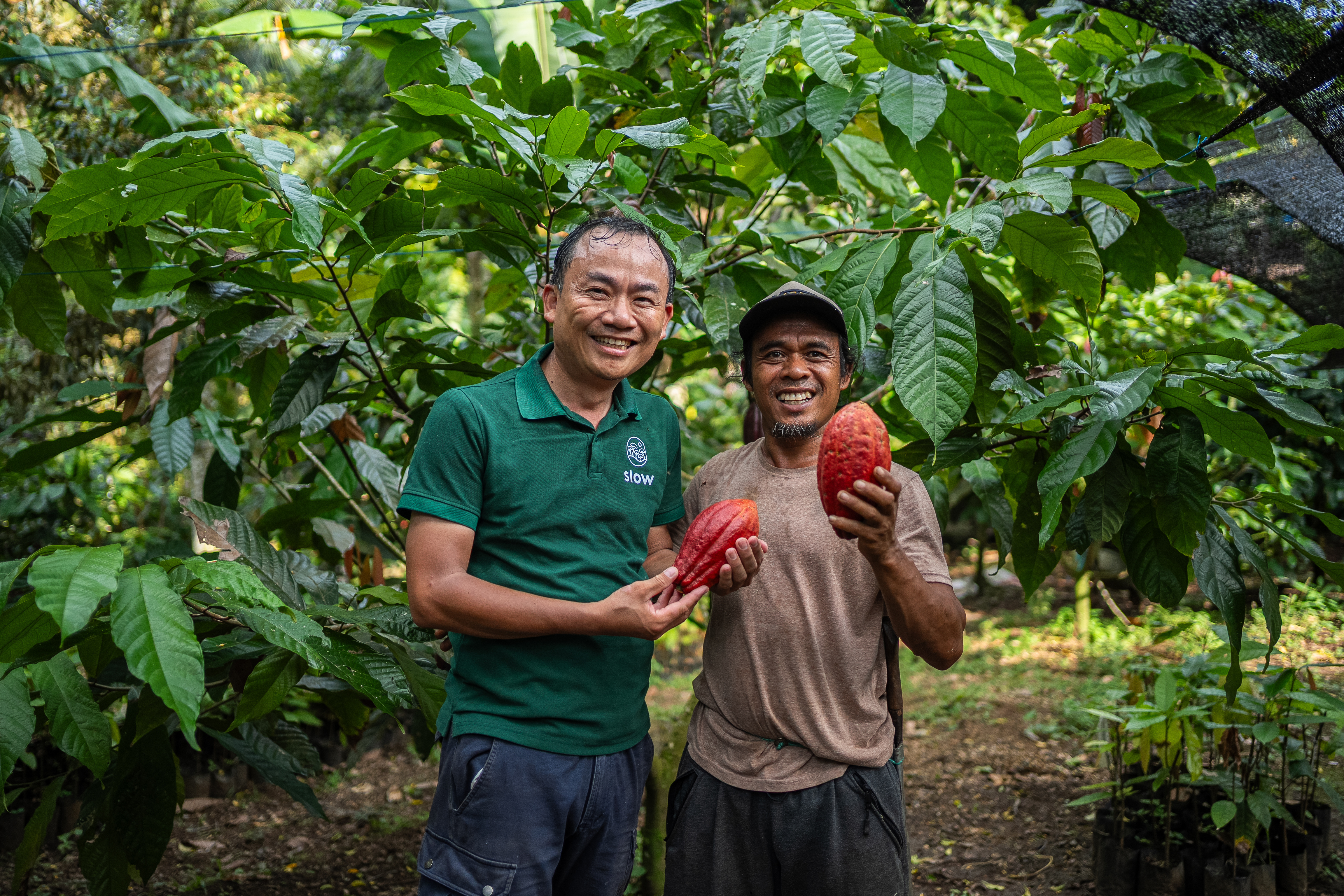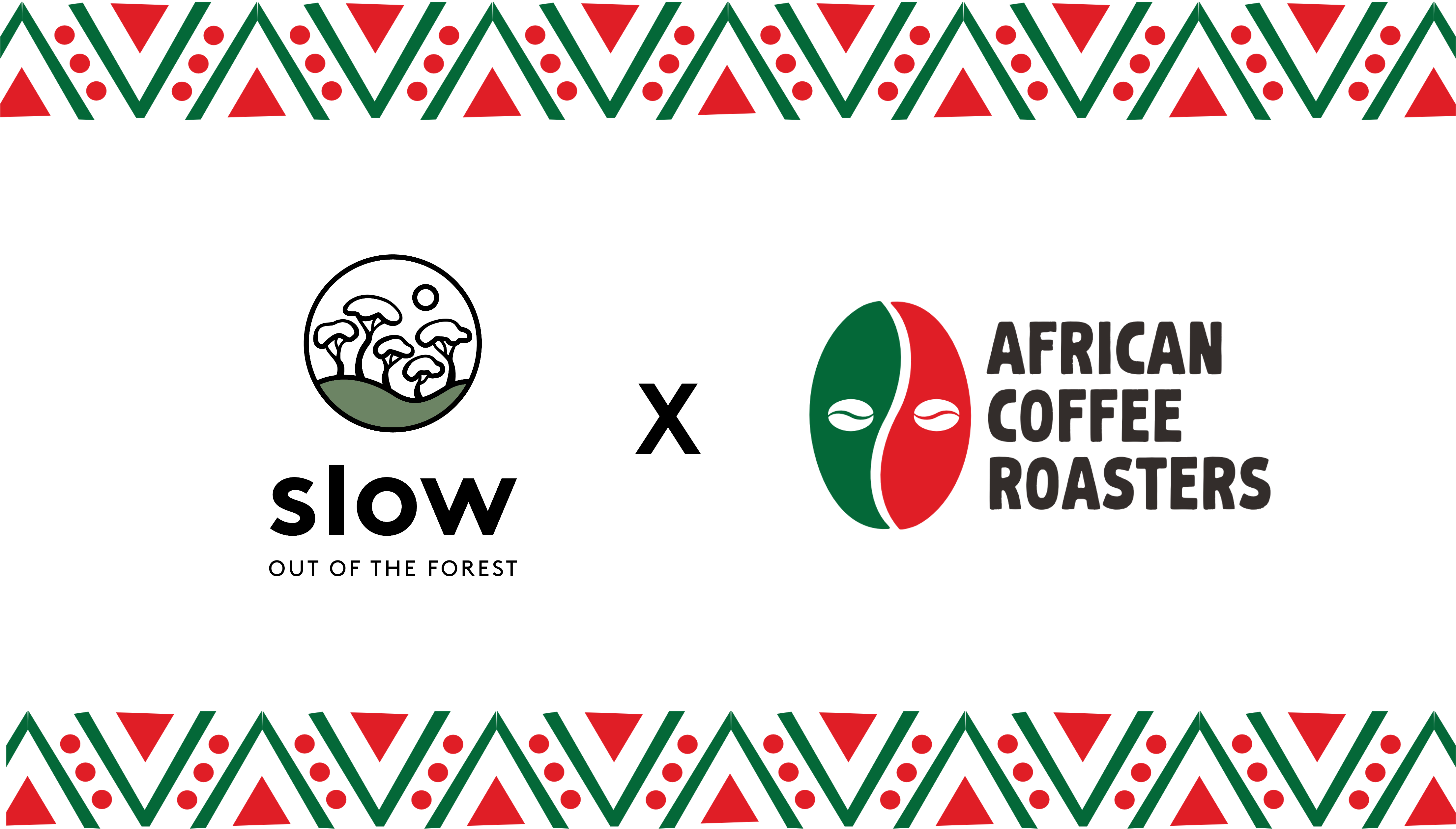What happens when coffee meets a forest?
Climate pressures are rising. In one Vietnamese coffee region, farmers are turning to agroforestry to secure yields, restore soils, and keep supply...

Coffee plant with cherries
Together with 153 coffee farmers, Slow grows sustainable coffee in agroforests in Laos. Now the coffee company, in collaboration with WWF, is expanding production to Indonesia and Vietnam, in addition to Laos. In these countries, Slow and WWF will support and guide coffee farmers who grow coffee in the peripheral areas bordering national parks and protected forest areas for a more sustainable production based on agroforestry.
A vital goal of the partnership is to improve the livelihoods of local farmers and enable them to sell high-quality organic and forest-friendly coffee through long-term contracts with business partners. In this way, the overall project also becomes financially sustainable. In Denmark, a number of larger Danish companies are already purchasing forest coffee by Slow.
“I am very pleased with the collaboration with the WWF. With their large reach, we can activate a large market together, thus scaling the green transition significantly. There is positive support from the companies as buyers of our forest coffee. And they are also set on long-term agreements, which is essential to ensure financing and stability,” says Sebastian Nielsen, CEO of Slow.
Slow and WWF’s partnership will be rolled out in 2022 in Laos, Indonesia, and Vietnam. It is expected to involve approximately 1000 coffee farmers. The experience that Slow and WWF gain through the project is made freely available to other companies and organisations that want inspiration for more sustainable production.
“We are in the middle of a natural crisis, and if we are to solve the world’s natural and climate problems, partnerships like this are needed. Together with Slow, we invest in nature. This makes the locals, companies, and the world richer. Now we are starting up, and when we have gained valuable knowledge, we will share our experiences with other companies and organisations that want to push for a green transition and nature-positive solutions,” says Bo Øksnebjerg, Secretary General of the WWF, and continues:

Coffee is one of the world’s most traded goods and a giant industry
“WWF has extensive experience with nature conservation projects in Southeast Asia, and our local offices have in-depth knowledge of the area and of the people who live there. Our task will, therefore, in addition to protecting large areas of forest, facilitate the cooperation with the local coffee farmers.”
The collaboration aims to combine Slow’s business and financing model with WWF’s knowledge of and access to local forestry and thus create a sustainable solution that can help deal with the world’s social and natural challenges. The project is supported by P4G, which aims to develop sustainable partnerships between businesses, organisations, and governments to combat global warming.
“To be eligible for support from P4G, it is a requirement that applicants develop market-driven solutions. With the support of Slow and WWF, it is our goal that they develop and test a sustainable model that can be scaled to several markets and thus also become financially sustainable,” says Iver Høj Nielsen, Head of Activities, P4G / State of Green.
Coffee is one of the world’s most traded goods and a giant industry. Worldwide, 10 million tons of coffee are produced annually. Unfortunately, the traditional cultivation method and value chain are outdated and lead to deforestation and poor conditions for biodiversity and coffee farmers. The coffee industry needs some fundamental changes to ensure sustainable production.
Therefore, Slow and WWF will use the grant from P4G to further develop and integrate WWF’s model for forest conservation with Slow’s model for sustainable food production. It is a key ambition for the collaboration to make regenerative coffee as competitive as conventional raw coffee.
In contrast to coffee cultivation in monoculture with only one crop and poor conditions for biodiversity, the coffee grown in an agroforest under the canopy of trees is thus re-established and preserved. This means that coffee cultivation positively affects the climate and biodiversity. Instead of causing deforestation, the coffee plants grow in harmony with trees, plants, and animal life.
Slow also plants local, endangered tree species, fast-growing shade trees and different kinds of fruit trees, which attract insects and birds, thus preserving and recreating the natural biodiversity. The trees in the coffee forest bind CO2, which is good for the planet. The forest also raises the quality of the coffee so that the coffee matures slowly and naturally in the shade of protective trees.
For more information, please contact us here.

Climate pressures are rising. In one Vietnamese coffee region, farmers are turning to agroforestry to secure yields, restore soils, and keep supply...

Earth Day reminds us that change doesn't have to wait for sweeping policy or perfect systems. Often, it starts with something as simple—and as...

Big news from Slow. African Coffee Roasters is now part of the Slow family. And this isn’t just an acquisition—it’s a major step forward in how...